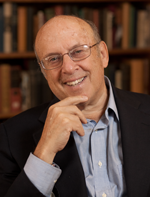Jeffrey Carduner, Aesthetic Realism consultant, writes:
What are two biggest hopes every person has? Can they fight in us—making for unhappiness? Is all philosophy in some way about them? Find out—and learn about the answer to that fight—by reading the tremendously useful and kind “Philosophy & Our Hopes,” the new issue of The Right of Aesthetic Realism to Be Known.
The commentary by editor Ellen Reiss begins:
Dear Unknown Friends:
With this issue we begin to serialize the 1965 Philosophy Consists of Instincts, by Eli Siegel. It is a lecture at once amazing and logically solid; it has might and ease, the everyday and the grand. As Mr. Siegel looks at philosophy, we can see something central distinguishing from all others the philosophy he founded and taught: he shows that the biggest matters in philosophy are equivalent to situations, desires, battles that are present in the life of everyone, often tormentingly, every day. It is Aesthetic Realism which shows that the subjects philosophers deal with, perhaps in intricate and forbidding language, are at work in a bewildered child, in an argument of a couple in a bedroom, at a party amid insincerity and laughter.
In this lecture, Mr. Siegel says that the largest conflict in everyone is between two instincts: the instinct to see, be exact, know, and the instinct to be comfortable, pleased. These are also, he says, the two biggest matters in philosophy! And he describes various philosophic forms that the conflict between them takes.
In Ourselves
As a prelude, I’ll mention some instances of that fight as it is going on now in people—including the people reading these words.
One aspect of it is told of compassionately, and I think greatly, at the beginning of Eli Siegel’s poem “The Dark That Was Is Here”:
A girl, in ancient Greece,
Be sure, had no more peace
Than one in Idaho.
To feel and yet to know
Was hard in Athens, too….
Young women of any time, any place, have wanted to have feeling for someone, feeling that is rich, thrilling, ever so pleasing. Yet such feeling has not seemed to go along with their logic, their intelligence. And that rift has made for grief even amid romance and victories.
In an Aesthetic Realism lesson I had at the age of 25, Mr. Siegel spoke to me on the subject. I had been expressing confusion about a man I was close to, and Mr. Siegel explained that there are two things every person asks as to someone we’re affected by: “You please me, but do you make me stronger? You make me stronger, but do you please me?” He continued, “The fact that something can please one and make one weaker has brought a certain sick quality to the life of man.” I learned that these questions, so intensely personal, are also questions central to philosophy and art; and that there is a solution to them, satisfying, logical, and beautiful. >> Read more
